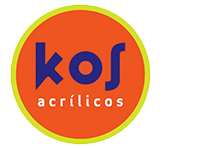This lifestyle leads to distance from others and more conflict within a family. Because it is difficult to manage life with a drinking problem, it is harder to be a good parent. They can lead to feelings of stress and anger and may interfere with parts of daily life, such as sleeping, eating, or concentrating. The AUDIT (Babor, Higgins-Biddle, Saunders, & Monteiro, 2001; Bohn, Babor, & Kranzler, 1995) was used to assess hazardous drinking for the purpose of sample description.
NIMH Information Resource Center
Inclusion criteria included OIF/OEF/OND veteran status, current or past history of alcohol use, and ability to read English at eighth grade level. Exclusion criteria included psychosis and severe alcohol dependence (i.e., presenting acute medical risk). Participants completed a baseline assessment and then were enrolled in an experience sampling method (ESM) study for approximately 1.5 years.
Arousal and reactivity symptoms include:
Data from the Ralevski et al., (2016) paper demonstrate the powerful effects that trauma reminders have on craving and alcohol consumption and, therefore, treatment needs to address both the AUD and PTSD symptoms. With regard to behavioral treatments, exposure-based interventions are recommended given the greater improvement in PTSD symptoms observed, coupled with significant reductions in SUD severity experienced. The available evidence suggests that medications used to treat one disorder (AUD or PTSD) can be safely used and with possible efficacy in patients with the other disorder. However, additional research on pharmacological agents based on shared neurobiology of AUD and PTSD would be useful. Many people with post traumatic stress disorder (PTSD) experience blackouts, among other symptoms.
Prevalence in veterans
Questions about blackouts during routine medical visits could serve as an important simple screen for the risk of alcohol-related harms. Alcohol-related blackouts are gaps in a person’s memory for events that occurred while they alcohol dependence withdrawal and relapse pmc were intoxicated. These gaps happen when a person drinks enough alcohol to temporarily block the transfer of memories from short-term to long-term storage—known as memory consolidation—in a brain area called the hippocampus.
The Relationship Between Alcohol And PTSD
Drinkers with PTSD are reactive; they drink large amounts of alcohol in response to the provoked re-experiencing and experiencing hurtful events. For some alcoholics, PTSD is a constant companion and a considerable burden both as a cause and result of addiction. People with PTSD are very likely to treat their symptoms (sleep disturbances, nightmares, agitation, ptsd alcohol blackout, anxiety, etc.) with alcohol or drugs for various reasons.
- Less than 20% of respondents who experienced AUD in their lifetime ever sought treatment for the condition.
- One of the rehabilitation centers exclusively served women, while the remaining centers, accepted only male patients.
- To help you along this empowering path, it’s essential to get clear on your reasons for making this positive decision.
- A number of factors may have influenced the findings noted in this review, including gender differences, veteran vs. civilian status, and the various behavioral platform employed.
The causes of memory loss after alcohol lie in its effect on nerve endings. Quite quickly, ethyl reaches the brain regions, where it begins to irritate the nerve endings. Ultimately, the fibers of the nervous tissue are destroyed, which leads to amnesia. Such symptoms are the first and very alarming call that the twelve steps alcoholics anonymous speaks of the development of alcoholism. Amnesia, or palimpsest caused by joy juice intake, is the inability of the memory to reproduce specific details over a certain period. This phenomenon often occurs in people who have post-traumatic stress disorder because they try to get away with their bad feelings.
They have the expertise to guide you safely through the process of reducing your alcohol consumption while monitoring your well-being. Understanding the complex relationship between Alcohol Usage Disorder and PTSD is a vital step towards recovery. It’s not about conforming to outdated stereotypes of “alcoholism” but recognising that problematic drinking exists along a broad spectrum. Anyone who experiences negative consequences due to alcohol use deserves support and the opportunity to make positive changes. Equally, going through trauma can lead to an alcohol use disorder, whether or not you develop PTSD.
In fact, the DIS has continued to be revised based on the DSM and the International Classification of Diseases, making it one of the most durable standardized diagnostic assessments in the field. Since the late 1970s, several U.S. surveys have collected information on mental health conditions, including AUD, SUD, and PTSD. These surveys include the Epidemiological Catchment Area (ECA) program, the National Comorbidity Survey (NCS), can microdosing mushrooms reduce anxiety depression and stress and the National Epidemiologic Survey on Alcohol and Related Conditions (NESARC). If you’re experiencing a blackout or brownout, you’re at higher risk for falling, injury and unwanted or unsafe sexual experiences. A person who is blacked out may also throw up while sleeping, which could lead to an increased risk of choking or suffocating. Excessive alcohol use isn’t the only thing that can cause blackouts or brownouts.
Even many bars now offer more than traditional non-alcoholic beverages like Becks Blue. This list of “whys” serves as a powerful reminder of your commitment to positive self-care. It forms the foundation of your new and exciting lifestyle choice, reinforcing your resolve and inspiring you to keep moving forward.
Learn how having PTSD and alcohol use problems at the same time can make your symptoms of both, worse. By Steven Schwartz, PhD It is now generally accepted that the “burden of” mental/behavioral health conditions are on par with or surpasses our most… The U.S. Food and Drug Administration (FDA) has approved two selective serotonin reuptake inhibitors (SSRIs), a type of antidepressant medication, for the treatment of PTSD. SSRIs may help manage PTSD symptoms such as sadness, worry, anger, and feeling emotionally numb.
